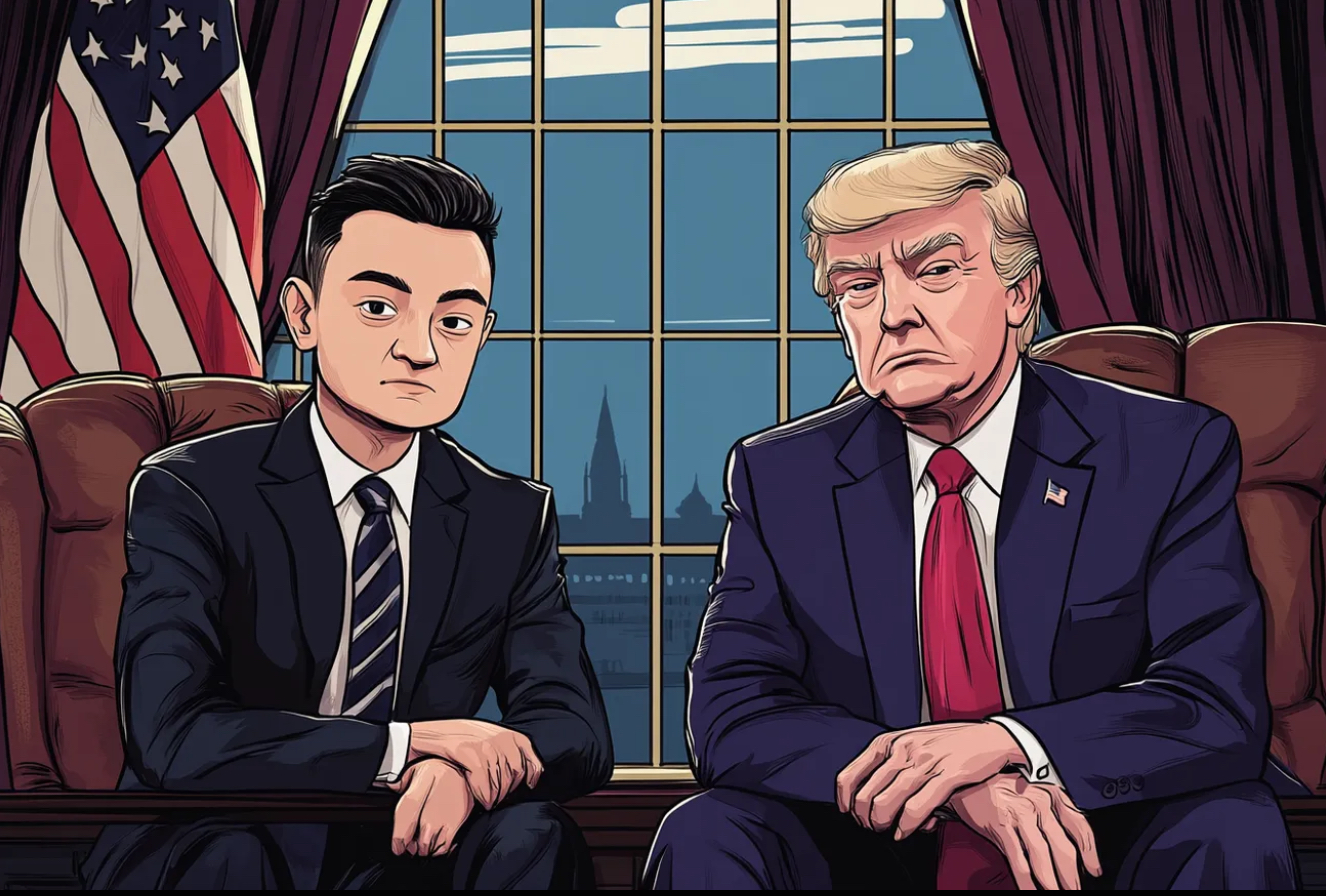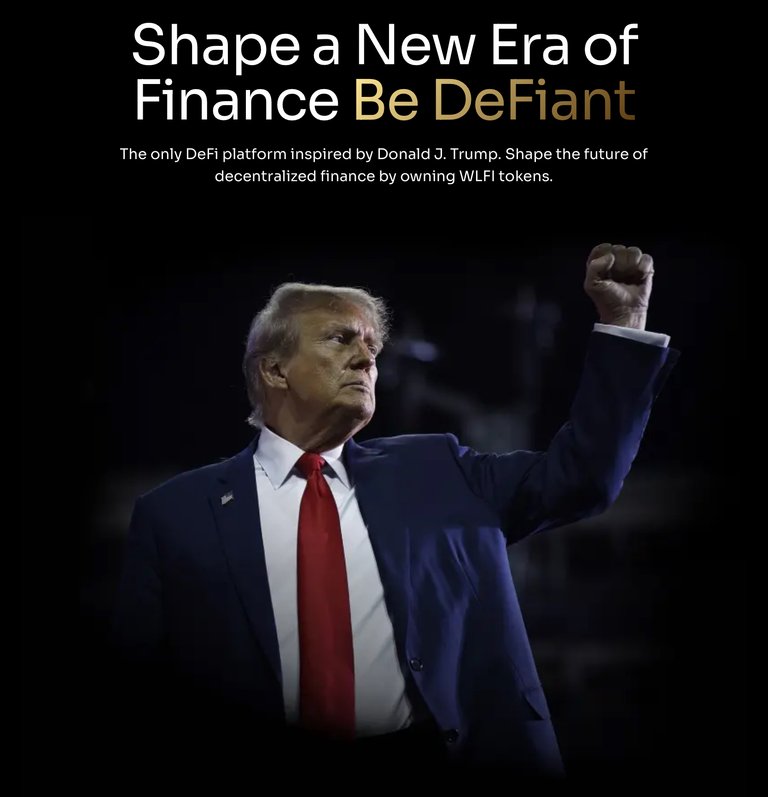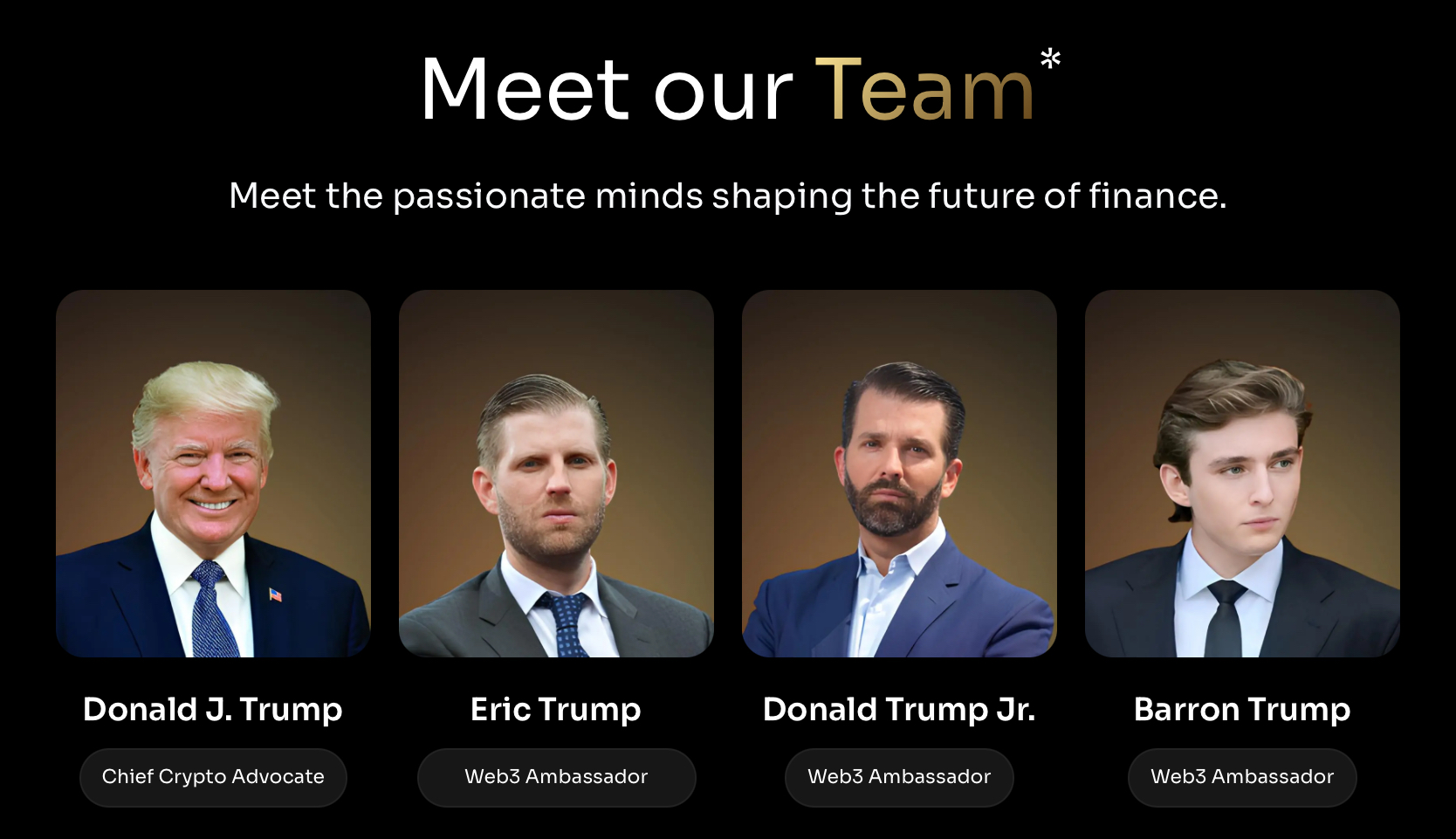Trump’s Crypto Project Was a Bust Until Justin Sun Stepped In …
And bought a $ 6.2 Million Banana …..

Donald Trump’s crypto project, World Liberty Financial, was looking like a bust. The president-elect and his sons had been promoting its cryptocurrency for weeks, saying it would “make finance great again,” but the industry largely rejected it. Sales fell 93% short of the goal, so low they failed to hit the minimum required to trigger a payout to Trump.

Then on Nov. 25, Justin Sun, a flashy China-born crypto founder, announced he was investing $30 million in World Liberty tokens. That pushed the project over the threshold, and the Trumps now stand to collect at least $15 million, based on terms detailed in World Liberty’s “gold paper.”

Source: https://www.worldlibertyfinancial.com
Sun, 34, who five days earlier paid $6.2 million at a Sotheby’s auction for a banana duct-taped to a wall, is a controversial figure in the crypto world. He’s fighting a lawsuit from the US Securities and Exchange Commission, which sued him in 2023 alleging he defrauded investors by manipulating the price of his Tron cryptocurrency with fake trades, which he has denied.
This year, when he got involved with a crypto project called WBTC, others involved threatened to pull out. But World Liberty named him an adviser, putting him in business with Trump, its “Chief Crypto Advocate,” and his sons Eric, Don Jr., and Barron, who are listed as “Web3 Ambassadors.”
“World Liberty Financial can be a beacon to move forward the whole blockchain industry in the US,” Sun said in an interview on Wednesday from Hong Kong, where he says he spends most of his time. “Because of the SEC’s approach of regulation by enforcement, crypto in the US has been at a disadvantage. They didn’t have an organization to unite people.”
World Liberty’s cryptocurrency isn’t very appealing as an investment. The tokens don’t promise a share of the company’s revenue. And the coins can’t be resold, unless the project’s rules are changed. But they do represent a good way to send money to the Trumps. Now that the project has received more than $30 million, 75% of all proceeds are paid to Trump’s company DT Marks DEFI LLC, according to the gold paper.
Sun’s investment shows how Trump’s cryptocurrency — along with his publicly traded company, Trump Media & Technology Group Corp. — present new opportunities for the wealthy to curry favor. During his first term, foreign governments spent millions of dollars at his Washington, DC, hotel. That conflict of interest looks “unbelievably quaint by comparison,” said Jeff Hauser, executive director of the Revolving Door Project, a nonprofit that scrutinizes executive branch appointees.
“Foreign countries and rogue business people would have never thought to be as brash in cultivating an American president as what we are witnessing in the orbit around Trump,” Hauser said.
World Liberty Financial and the Trump transition team didn’t respond to requests for comment.
Born in China as Yuchen Sun, Sun has in recent years gone by the honorific “His Excellency” after he was made a diplomat by the Caribbean island of Grenada. (The current status of that appointment is unclear.)
He’s known for his self-aggrandizing stunts, like paying $4.5 million for a meal with Warren Buffett in 2019, spending $500,000 for an NFT rock in 2021, and announcing a plan to save Sam Bankman-Fried’s crypto exchange FTX in 2022. (That never happened, nor did an announced $1 billion fund to save crypto in 2024.) He also made sure the world knew about his investment in World Liberty, a purchase he could’ve made anonymously, by announcing it on X.
Sun said he hasn’t met with any of the Trumps but expects to meet one of them at a Bitcoin conference in Abu Dhabi next month. Eric Trump is scheduled to attend, according to the conference’s website. Sun said he didn’t expect any favors from Trump in exchange for his investment.
Trump has pledged to replace SEC Chairman Gary Gensler with someone who’ll take a more conciliatory approach to crypto, and he’s been meeting with industry executives, including Coinbase Global Inc. Chief Executive Officer Brian Armstrong, whose company is also fighting an SEC lawsuit, as he weighs who to appoint to run the agency.
“Gensler’s approach to crypto went from fact-driven to name-driven,” Sun says. “He turned into someone like, ‘I want to sue Coinbase, I want to sue Justin Sun, just find something so I can sue them.’”
Crypto, Bibles, Sneakers
World Liberty’s founders, Chase Herro and Zachary Folkman, were not well-known in the crypto industry. Folkman once taught classes about how to pick up women, and Herro has sold colon cleanses and get-rich-quick classes and called himself the “dirtbag of the internet.” But they hit it off with Trump’s sons. And Trump, who once called Bitcoin a “scam,” changed his tune after wealthy crypto investors started donating to his campaign. He began promoting World Liberty in September, part of a flurry of shilling that also included Trump sneakers, Bibles and digital trading cards, unprecedented for a presidential candidate.
“We’re embracing the future with crypto and leaving the slow and outdated big banks behind,” Trump said in a video posted on social media.
Sun founded the Tron blockchain, popular in Asia, in 2017, raising about $70 million by selling a proprietary token called TRX. The SEC’s lawsuit against Sun alleges that he engaged in manipulative trading to pump up the value of TRX and another token, and that celebrities including Jake Paul and Lindsay Lohan received undisclosed payments to promote it.
Sun has denied the allegations, and one of his lawyers said in a court filing in May that the supposedly manipulative trades cited by the SEC accounted for such a tiny fraction of trading that they couldn’t have had the alleged effect. (Lohan and Paul settled with the SEC for $40,670 and $101,887, respectively, neither admitting nor denying the claims.)
‘Crime Syndicates’
Tron has been criticized for facilitating illicit activity. It hosted 45% of all illicit flows last year, more than Ethereum or Bitcoin, the blockchain tracking firm TRM Labs said in a March report. And in October, the United Nations Office on Drugs and Crime said in a report that Tron was “the preferred choice for Asian crime syndicates.”
Tron in September announced a partnership with TRM to stop crypto crime. “Illicit activity is not welcome in our industry,” Sun said in a statement at the time.
Much of the activity on Tron involves stablecoins — cryptocurrencies backed by real-world assets held in reserve. But Circle Internet Financial, which controls the biggest US stablecoin, discontinued support for Tron in February, citing “risk management,” among other reasons. World Liberty plans to launch its own stablecoin. Sun said that he hoped it would help connect Tron to US financial institutions.
The $6.2 million banana that Sun bought was a work of conceptual art, titled Comedian, by the Italian artist Maurizio Cattelan, meant to poke fun at the art world. It comes with instructions on how to tape the banana and to replace it when it rots. Sun said in the interview that he’s got big plans for it.
“I want to tape my banana on the wall of the White House,” Sun said.
Sun ate the banana on Friday at a press conference at a hotel in Hong Kong.
